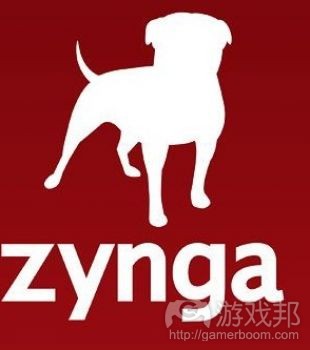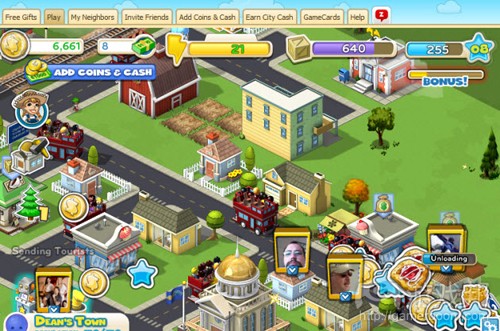论述Zynga创收数据背后的隐含意义
作者:Lloyd Melnick
起初,我并不打算就Zynga的收益报告发表意见。我不是股票分析师,我觉得自己观点意义不大。但这一公告成为热门话题,受到社交游戏公司及普通人士的热议,因此我觉得自己若没有进行些许分析,将显得有些失职。
数据的含义
最重要的数据是,Zynga的bookings收益为3.02亿美元(这是衡量收益的另一方式,对社交游戏公司来说,这比GAAP收益更准确),这一季度损失2280万美元。今年,Zynga预计创收12亿美元,所得利润约1.8亿-2.5亿美元。
这些数据低于分析师和投资者的预期,致使Zynga股票下跌近40%。若你有了解相关新闻或博客,你定会认为40%的下跌意味着社交游戏行业及Facebook将步入尾声,或者至少Zynga会走向末日。但这反映的是,Zynga IPO前公众对其寄予厚望。Zynga需要维持强劲发展势头,方能证明公司首次公开估价的合理性,很简单,他们并没有做到这点。这并没有令Zynga变成一家糟糕公司或是将社交游戏变成一个即将消亡的行业;这只是意味着所有人都必须面对现实。
和Glu相比较
一个有趣比较是Zynga的收益和Glu Mobile此前公布的收益报告。Glu打破分析师在收益和利润方面的预估。据Glu表示,公司这一季度的收益是2160万美元,亏损是600万美元。由于这些数据超越预期,因此Glu的股价迅速蹿升,分析师仿佛觉得,Glu比Zynga更加炙手可热。最主要的是,Zynga的收益是Glue的14倍(游戏邦注:约多出2.8亿美元),Zynga有多款Facebook游戏的单独收益均超过Glu整个公司的创收。
我不希望让人觉得我在贬低Glu;这家公司有几位我的好友,他们找到正确方向。我只是觉得突出和比较两家公司的创收数据非常重要,因为很多公司的叙述都和事实不符,他们随后根据叙述内容做决定。由于Glu是少数已上市手机游戏公司,他们的收益大多来自亚洲以外的地区,这是收集数据,同Zynga进行比较的良好起点。Glu在Zynga尚未出现前就进军移动领域。虽然该公司转投免费模式的步伐非常缓慢,但相比多数游戏公司,它在手机社交游戏领域具有抢先优势。若手机领域真的是赚钱机器,Facebook是个消亡平台,那么Glu的收益是不是应该和Zynga更加接近,而不是只有后者的1/4?根据这些数据,我们可以推断其他仅锁定手机社交游戏的开发公司的收益。这些数据多半都无法同Zynga匹敌(亚洲手机社交游戏公司除外)。
那么为什么Zynga丧失辉煌业绩?
此创收发布会最有趣的一点在于,Zynga丧失辉煌业绩的原因。据Mark Pincus表示,“Zynga在我们网页的游戏的粘性和bookings有所下滑,这部分是由于Facebook就平台做出调整。”Zynga还将较低收益归咎于产品发行延误及《Draw Something》的预期降低。
上述内容是“官方”文字。我的分析涉及3点Zynga表现不佳的原因:
1. 我们置身于靠热门作品推动的行业之中。我之前曾表示,最多只有25%的社交游戏实现收支平衡或赚取收益。Zynga也无法逃脱这些基线率。尽管社交和手机游戏公司尝试说服风投资本及投资者相信我们不再处于靠热作驱动的行业之中,但事实情况是,行业确实如此,Zynga也是如此(游戏邦注:EA和迪斯尼也是如此)。因此,每款发行作品都有75%的失败几率,这就是Zynga上个季度所经历的情况。他们没有丧失自己的魔法;他们不过是在回归均值。若他们上季度有推出热门作品(或这个季度有推出热门作品),情况就会截然不同,虽然其根本业务依然保持不变。
2. 快速跟风不像过去那么简单。曾经Zynga能够鉴别Facebook平台的成功作品,完善其潜在机制和主题,然后通过大规模营销活动推出他们自己的产品。市场已发展至这样的阶段:这一策略不再适用。虽然Zynga可以利用这一模式,通过发行《Farmville》压倒SocialApps(《MyFarm》开发商),通过推出《黑手党战争》击败《Mob Wars》开发者,以及以《Cityville》打败Playdom (《社交城市》开发者),但新生代的竞争者不再那么容易对付。Playdom如今隶属迪斯尼旗下,因此Zynga企图超越《时光花园》的计划最终只能以不相上下告终。《The Ville》的问世颇令人颇为失望,因为Zynga如今是在和EA竞争用户,EA能够轻松推进《The Sims Social》的流量。就连NimbleBit(《迷你大楼》开发者)也能够顺利挡开《Dream Heights》,因为在当前的社交游戏领域,他们能够顺利获取充足用户,因此留给Zynga的用户非常有限。最后一点最重要,因为只要游戏倍受欢迎(如《The Sims Social》或《迷你大楼》),你就很难争取到他们的用户,除非你就体验做出创新性的改善。只要玩家在游戏中投入时间和金钱,他们就不会转投其他游戏(仅仅出于这些游戏的界面更清晰,图像更鲜明)。
在将热门Facebook游戏的国际版作为独立产品发行时,我目睹类似情况。虽然用户倾向通过本土语言玩游戏,但转投本土版本,进而丧失他们在英文版本中所取得的进展对于多数玩家来说很不值得(在很多情况下,分支版本都惨遭失败)。相同动态机制还阻碍Zynga通过推出更优质的版本争取竞争对手热门社交游戏的既有玩家。
3. “若你烧毁家具,那么你就无处落座。”我参与众多近乎奄奄一息的风投项目,我们尽最大努力,提高收益和利润水平,以影响估值,即便这损及未来的业务。在某情况下,我曾被要求“烧毁家具”,这样更多收益当月就能够得到兑现,我们希望达成一笔交易,即便可能会给未来各季度的收益带来消极影响。虽然我并不清楚Zynga IPO前的运作情况,但根据我常看到的心态,不难想象该公司曾在IPO前烧毁很多“家具”,现在只能进行“替换”(这也影响了该公司的收益和利润)。
数据并未包含的含义
首先,移动平台并未取代Facebook网页,成为唯一的社交平台。虽然Zynga将Facebook列为第一大难题,但它在移动平台的表现并没有更突出。此外,就如我通过比较Zynga和Glu的表现所指出的,Zynga从各款Facebook游戏中获得的收益依然高于Glu,尽管Glu的焦点和体验主要是移动领域。我并不是说手机社交游戏不是有利机会或是行业的未来;但在放弃Facebook平台前我们必须查看事实情况。
其次,Zynga依然还有发展空间。我不评论Zynga的估值,就我上面简要谈到的数据来看(这一季度,bookings超过3亿美元,年度预期收益是12亿美元,年度预期利润是1.8亿美元),Zynga是全球最重要的游戏公司之一,而且显然是亚洲地区以外的主流社交游戏公司。
Zynga反对者需慎言
本文的主要目的是反驳我过去几天看到的行内外可笑言论。业内同仁在看到Zynga身处困境时内心窃喜不合逻辑,这会损及他们自己及其他伙伴。无论你喜不喜欢,在我们的小世界之外,社交游戏和Zynga其实是同义词。因此,如果有人觉得Zynga不是家优秀公司,那么他们就是觉得我们所处的不是优秀行业。这会导致投资减少,各公司享有越来越少机会寻找退路(游戏邦注:或通过收购,或通过公开募股)。如果他们成为更大规模上市公司的一部分,他们对于母公司的重要性就显著减少,因为其收益比重降低了。重要性降低就会促使投资减少。不要嘲笑Zynga,有天也许你会听说自己的公司倒闭了,因为社交游戏不再具有吸引力。
更讨人厌的是,行业分析师有时发表颇为无知的评论,他们完全不了解我们的行业。这些类型的评论在游戏领域是个问题,因为这是个特殊行业,外部人士很难理解。此外,由于游戏领域就绝对数值来说属于较小规模,我们并未得到“AAA”分析师的关注。
关于Zynga的评论,最荒谬的要数Michael Gartenberg,他表示,“但到最后,虚拟商品也许将不再是可行的商业战略。用户最终会停止在虚拟商品中掏钱,希望将这些资金花费真正的商品上。”但关于此,Gartenberg并未提供任何证据,这显然只是他自己的凭空想象。同周,Zynga的表现未达到预期水平,Starbucks也表现不佳。我很惊讶,Gartenberg没有这么评论这一情形:“但到最终,付费咖啡不再是个可行商业战略。消费者不再会花费4美元购买咖啡,希望只在咖啡上投入0.5美元。”
总结
我不知道Zynga的股价是否定价过高或过低,我撰写本文的目的是,希望大家能够客观看待Zynga及整个行业,而不是听信于不准确的叙述内容。(本文为游戏邦/gamerboom.com编译,拒绝任何不保留版权的转载,如需转载请联系:游戏邦)
A look inside Zynga’s numbers
by Lloyd Melnick
Originally, I was not going to post about Zynga’s earnings report, which was released Wednesday evening. I am not a stock analyst and I did not feel I brought much to the party. However, the announcement caused so much conversation both from companies in the social gaming space and pretty much everyone else, that I felt remiss if I did not add my analysis.
What the numbers really say
The most important numbers are that Zynga generated $302 million in bookings (an alternative measurement of revenue that is more accurate for social game companies other than GAAP revenue) and a loss of $22.8 milion for the quarter. For the year, Zynga is projecting revenue of about $1.2 billion and a profit (adjusted EBITDA) of between $180 million and $250 million.
These numbers are all below analysts’ and investors’ expectations, and prompted Zynga’s stock to drop almost 40 percent. If you read the press or blogs (or talked to people at Casual Connect), you would think this 40 percent drop meant either the end of the social gaming industry, the end of Facebook, or at least the end of Zynga. What it reflects, however, were the huge expectations for Zynga leading up to its IPO. Zynga would have had to continue its miraculous growth to justify its initial public valuation, and quite simply, it did not. That does not make Zynga a bad company or social gaming a dying industry; it just means everyone must face reality.
Comparison with Glu
An interesting juxtaposition was Zynga’s fortunes compared with Glu Mobile’s earnings report last week. Glu beat analysts’ estimates on both revenue and profits. Glu reported revenue for the quarter of $21.6 million, with a $6 million loss for the quarter. Because these numbers exceeded expectations, Glu’s shares jumped and analysts spoke as if it showed that they were a hotter company than Zynga. The bottom line is Zynga generated almost 14 times the revenue of Glu (almost $280 million more) and has multiple Facebook games that generate more revenue individually than Glu does as a company.
I do not wish to imply that I am beating up on Glu; I have some good friends there (hopefully still after this post) and they are on the right track. I just feel it is quite important to highlight and compare the absolute numbers that both these companies are generating, because many people are creating a narrative that does not fit the facts and then making decisions based on this narrative. Since Glu is one of the few publicly traded mobile game companies that generates most of its revenue outside Asia, it is a good starting point to gather data to compare with Zynga. Glu was in the mobile space before Zynga even existed. Although it was slow to move to free-to-play, it had a huge head start on most gaming companies in the mobile social gaming sphere. If mobile was truly the money machine so many would like us to believe and Facebook was a dead platform, shouldn’t Glu be closer to Zynga in revenue rather than 1/14th its size? From these numbers, we can probably extrapolate the revenue of other mobile-only social gaming companies. And those numbers are almost certainly not close to Zynga’s (again, excluding the Asian social mobile companies).
So why did Zynga miss its numbers?
One of the most interesting elements of the earnings call was the reasons that Zynga missed its numbers. According to Mark Pincus, “[Zynga] saw declines in engagement and bookings for our Web games due in part to changes Facebook made to their platform.” Zynga also blamed the lower earnings on delayed product launches and reduced expectations for Draw Something.
The above is the “official” line. In my analysis there are three real reasons that Zynga underperformed
1. We exist in a hit-driven industry. I previously wrote that at best 25 percent of social games break even or make a profit. Zynga is not immune to these baseline rates. As much as social and mobile game companies have tried to convince VCs and investors that we no longer live in a hit-driven world, the reality is we do and Zynga does (as does EA, Disney, etc.). Thus, every launch has a 75 percent chance of failure and that is what Zynga experienced last quarter. They did not lose their magic; they suffered regression to the mean. If they had one hit last quarter (or have one this quarter), the narrative will be entirely different, even though the underlying business remains unchanged.
2. Fast following is not as easy at is used to be. There was a day when Zynga could identify a successful game on Facebook, polish the underlying mechanic and theme, and blow up their product with overwhelming marketing. The market has evolved to the point that this strategy no longer works. While Zynga was able to overwhelm SocialApps (MyFarm) with the launch of Farmville, Mob Wars’ creator David Maestri with Mafia Wars and Playdom (Social City) with Cityville, using this model, the new wave of competitors are not as easy picking. Playdom is now owned by Disney, so Zynga’s attempt to overwhelm Gardens of Time was met dollar for dollar. The launch of Ville was disappointing because Zynga was now competing for players with EA, who could drive as much traffic as it wanted to The Sims Social.Even NimbleBit (Tiny Tower) was able to stave off Dream Heights because in the current social gaming environment, it could acquire enough users that there were few left for Zynga. This last point is particularly relevant, as once a game gains broad popularity (e.g., The Sims Social or Tiny Tower) it is virtually impossible to win over that audience unless you make a revolutionary improvement to the experience. Once a player has invested time and money into a game, they are not going to switch to another game (and lose that investment) just because the interface is a little cleaner or graphics sharper.
I witnessed the same thing when launching international versions of popular Facebook games as a separate product. Even though people preferred to play in their native language, it was not worth it to switch to the localized version for most players and lose the progress they had made in the English version (in many cases dooming the branched versions). The same dynamic now limits Zynga’s ability to win over existing players from popular competing social games by introducing a mildly better version (and because of marketing, there are very few users who have not been exposed to the original).
3. When you burn the furniture, you have nothing to sit on. I have worked at several ventures that were nearing an exit event and in all my experiences extraordinary efforts were made to move revenue and profits into the period that would most impact valuation, even if it hurt future business. In one case, I was asked to “burn the furniture” so more revenue could be recognized in the month we were hoping to close a deal, even at the expense of negatively impacting revenue for quarters to come. Although I have no direct knowledge of how Zynga operated just before its IPO, given the mentality I have seen frequently, it is not a big stretch to think a lot of furniture was burned pre-IPO that now has to be replaced (and thus dragging on revenue and profitability).
What the numbers do not mean
First, mobile has not replaced Facebook web as the only social platform. Although Zynga listed Facebook as its number one problem, its mobile performance has been no better (let’s not forget that Words with Friends, Draw Something and Dream Tower were first and foremost mobile offerings). Moreover, as I pointed out by comparing Zynga’s performance with Glu’s, Zynga is still generating more from individual Facebook games than Glu is generating as a company, despite Glu’s focus and experience in the mobile space. I am not saying mobile social is not a great opportunity or potentially the future of our industry (or a key part of it); but we must look at the facts before writing off the Facebook platform.
Second, Zynga is far from dead. I do not have an opinion on Zynga’s valuation, but just looking at the numbers I recapped above ($300+ million in bookings for the quarter, $1.2 billion in revenue projected for the year and an expected annual profit of over $180 million) shows that Zynga is one of the most important game companies in the world and clearly the leading social game company outside of Asia.
Shut up Zynga haters
The main reason for this post is to counter some of the incredibly stupid comments I have seen in the last few days both from inside and outside the industry.
The glee that our colleagues in the social game space are taking at Zynga’s difficulties are not logical and will hurt them as much as anyone. Like it or not, outside of our little world, social gaming and Zynga are virtually synonymous. Thus, if people feel Zynga is not a good company, they feel we are not in a good industry. That leads to fewer investment dollars and fewer opportunities for an exit (either through an acquisition or public offering). If they are already part of a larger public company, it means their importance to the parent company is diminished, because the multiple applied to their revenue is less. With lower importance, comes less investment (e.g., fewer resources and potentially less staff). It is cute to laugh at Zynga until you hear that your group is being closed down because social gaming is no longer attractive.
Even more annoying are the sometimes incredibly ignorant comments from industry analysts who really do not understand our industry. These type of comments have always been a problem in the game space, as we have a very idiosyncratic industry that is difficult to understand from the outside. Add to that problem that because the gaming space is small in absolute terms, we typically do not receive attention from the “AAA” analysts.
The most absurd comment I saw in this round of commentary about Zynga was from Michael Gartenberg, who said, “At the end of the day, though, virtual goods might not be a viable business strategy. People eventually stop spending money in virtual goods and want to spend that money on real goods.” Yet Gartenberg provided no evidence that this is the case (keep in mind that Zynga’s revenue was effectively flat), other than apparently wishful thinking on his part. The same week that Zynga missed its numbers, Starbucks also significantly missed theirs (and also suffered a big hit on its stock). I am surprised that Gartenberg did not comment on this situation that “At the end of the day, though, premium coffee might not be a viable business strategy. People eventually stop spending $4 on coffee and want to spend only $0.50 on real coffee.”
Conclusion
I do not know if Zynga’s stock is overpriced or underpriced, but I wrote this post in the hopes that people can look objectively at the company and industry rather than get sucked into a highly inaccurate narrative.(Source:lloydmelnick)









































 闽公网安备35020302001549号
闽公网安备35020302001549号